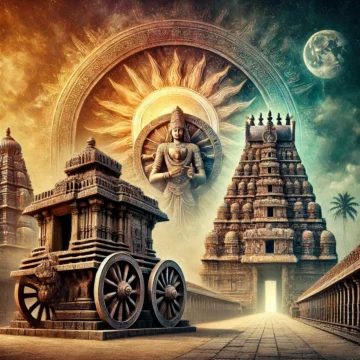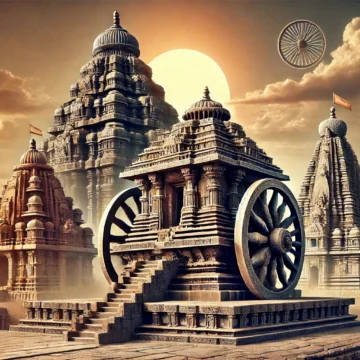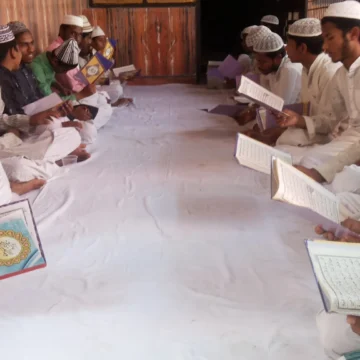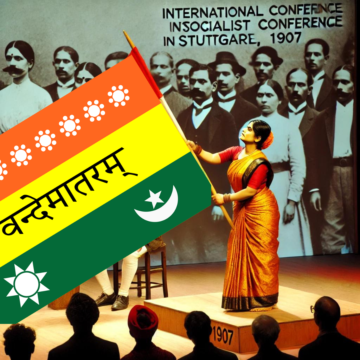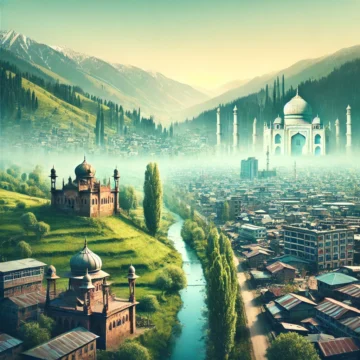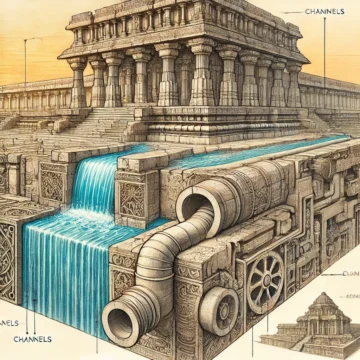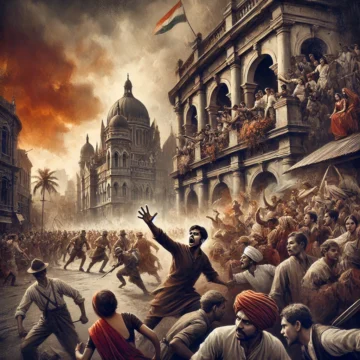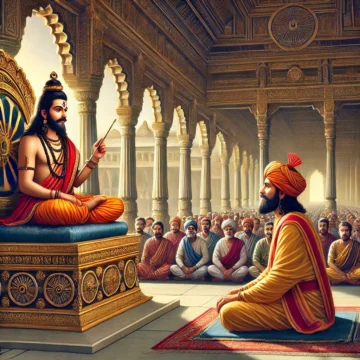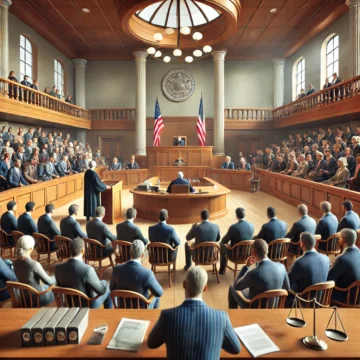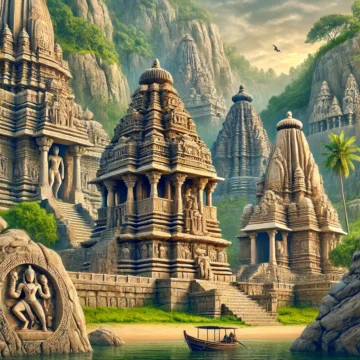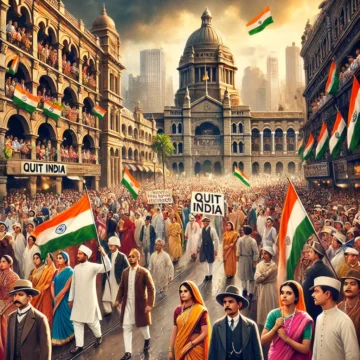Dive into the detailed comparison of the Sun Temple Konârak with its contemporaries like Ranganathaswamy and Meenakshi Temples. Uncover the blend of Vedic influences with regional architectural styles, exploring expansive courtyards, vibrant sculptures, and how these ancient designs challenge modern architectural approaches.
16 Sanskara and Punsavan samskara
Explore the profound significance of 16Sanskars in Hindu culture through our series, starting with Punsavan Samskara. This ritual, crucial in the early stages of pregnancy, aims to ensure the unborn child's health and virtues, weaving a sacred link between physical health and spiritual purity.
Konark Temple Marvels: Comparison With Peers-I
Explore the architectural splendor of the Sun Temple Konark, a 13th-century marvel that seamlessly blends Vedic sciences with breathtaking design. Known as the Black Pagoda, this temple showcases intricate carvings and advanced metallurgical knowledge, standing as a testament to the ingenuity of ancient Indian builders. Join us as we compare it with other legendary temples.
Dwarka Temple: The Eternal Dham of Lord Krishna Divine Sanctuary
Dwarka Temple, one of the sacred Char Dham sites, holds immense spiritual significance in Hinduism. Dedicated to Lord Krishna, the temple stands as a symbol of divine governance and offers pilgrims a profound connection to the deity. With its rich history, unique rituals, and cultural impact, Dwarka remains a beacon of faith for millions of devotees worldwide.
Mahatma Gandhi and His Principles Analyzed
Exploring Mahatma Gandhi's complex legacy, this blog dives into his reinterpretation of non-violence, political use of religious symbols, and strategies during the Indian independence movement. It critically examines how Gandhi's actions sometimes contradicted his ideals, particularly in his approaches to Hindu-Muslim unity and economic self-reliance, offering a nuanced perspective on his enduring impact.
Indo Pak War and Operation Grand Slam
Explore the pivotal Operation Grand Slam during the Indo-Pakistani War of 1965, an endeavor aimed at altering the military and political landscape in favor of Pakistan. Delve into the roots traced back to the tumultuous Partition of 1947, shedding light on how historical tensions have shaped enduring Indo-Pak relations.
Sun Temple of Konarak: A Challenges to Modern Science-II
Exploring the Sun Temple of Konarak, this series delves into the architectural marvels enabled by Vedic teachings. We scrutinize the temple's structural cantilevering, acoustic design, and astronomical alignment—achievements unaided by modern technology, yet posing significant challenges to contemporary science and engineering practices.
Madrasa Education in India
Madrasa education in India serves dual roles: preserving Islamic teachings and integrating Muslim youth into broader societal frameworks. While facing scrutiny for potential radical influences, many madrasas strive to modernize, incorporating secular subjects alongside traditional religious studies. This blog examines their role in cultural preservation and educational reform.
Badrinath Temple: A Spiritual Beacon in the Himalayas
Explore the profound spiritual and cultural significance of Badrinath Temple, a pivotal site in Hinduism nestled in the Himalayas. Revered for its divine connection and as a cornerstone of the Char Dham Yatra, Badrinath offers a sanctuary for spiritual renewal, promoting a deeper connection with the divine and fostering personal transformation.
Bhikhaiji Cama And First Indian Flag
Madam Bhikhaiji Cama, a profound figure in the Indian independence movement, made history on August 22, 1907, by unfurling what she presented as the first Indian flag at the International Socialist Conference in Stuttgart, symbolizing a unified struggle against imperialism and showcasing India's burgeoning demand for sovereignty.
Article 370: Path to Insertion and Revocation
Explore the historical context and impact of Article 370, which granted Jammu and Kashmir special autonomous status, and its revocation in 2019. This blog delves into the origins, the controversies it stirred, and the profound changes it brought about, shaping the region's political and social landscape.
Narayana Guru: Beacon of Equality and Enlightenment in Modern India
Commemorating Narayana Guru's birth anniversary, this blog delves into his transformative journey from early struggles in Kerala to becoming a beacon of equality. We explore his spiritual enlightenment, groundbreaking social reforms, and enduring philosophies that continue to inspire movements for justice and unity in modern India.
Sun Temple Konark Architecture: A Challenges to Modern Science-I
Exploring the Sun Temple Konark's blend of Vedic sciences and architecture, this blog assesses whether modern engineering could replicate such marvels. Delving into the temple's use of astronomy, mathematics, and artistry, we uncover the profound scientific acumen of ancient India and its enduring influence on modern scientific and architectural techniques.
Char Dham Yatra
Embark on the spiritual journey of the Char Dham Yatra, exploring the four sacred sites of Badrinath, Dwarka, Puri, and Rameswaram. This pilgrimage intertwines the spiritual diversity of Hinduism across India’s vast landscapes, offering a transformative experience that seeks to purify the soul and deepen faith.
Radcliffe Line: Elusive Boundary That Crafted Chaos
Discover the harrowing impact of the Radcliffe Line, a boundary that didn't just separate geographies but altered destinies. As we delve into personal accounts and political maneuvers, this blog explores how hastily drawn borders reshaped the Indian subcontinent, turning neighbors into refugees and setting the stage for ongoing conflicts between India and Pakistan.
Direct Action Day 1946 and Partition of India
Direct Action Day on August 16, 1946, profoundly reshaped the trajectory of India's independence, leading to Partition. The events, intended as peaceful, were marked by orchestrated violence against Hindus, exposing deep religious divides. This pivotal day set the course for creating Pakistan, igniting lasting impacts on regional and global stability.
Dattatreya and His Gurus- Water and Fire
Explore the profound spiritual teachings of Bhagwan Dattatreya as he reveals the wisdom of his 24 gurus through the elements of Water and Fire. These teachings offer a path to personal transformation and enlightenment, emphasizing the virtues of purity, resilience, and the dynamic interplay of renewal and purification in our lives.
Manish Sisodia: Analyzing grant of Bail in Delhi Excise Policy case
The potential granting of bail to Manish Sisodia in the Delhi Excise Policy case could set significant legal and political precedents. This blog explores the implications of the decision, critiques the judiciary's handling of high-profile cases, and discusses the broader challenges faced by the legal system in maintaining justice and public trust in politically charged environments.
Oldest Indian Temples: Timeless Treasures of Spiritual Brilliance
The history of Hinduism is intricately woven with the construction of magnificent temples that not only serve as places of worship but also as repositories of art, culture, and history. From rock-cut sculptures to towering stone edifices, these temples stand as testaments to the enduring legacy of Hindu spirituality and artistry, offering a glimpse into ancient India's rich heritage and architectural ingenuity.
India’s Freedom Struggle Efforts and Quit India Movement-III
In this detailed analysis, we explore the Quit India Movement of 1942—a pivotal uprising in India's fight for independence. Initiated by Gandhi amidst World War II pressures, this movement marked a drastic shift from previous resistance strategies, ushering a more direct confrontation against British rule and catalyzing a nationwide push for sovereignty.


